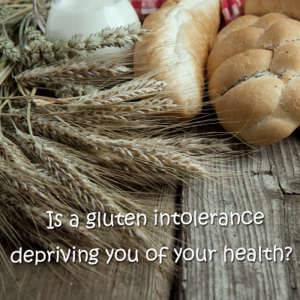 For individuals who are sensitive to gluten and those who have celiac disease, following a gluten-free diet is the only feasible option. Those people whose diet includes a large component of foods such as bread and pasta may wonder if alternative foods will cause them to be deficient in either energy or nutrients.
For individuals who are sensitive to gluten and those who have celiac disease, following a gluten-free diet is the only feasible option. Those people whose diet includes a large component of foods such as bread and pasta may wonder if alternative foods will cause them to be deficient in either energy or nutrients.
What many people do not realize is that eliminating gluten can be a wise idea for anyone, regardless of whether or not they suffer from any kind of sensitivity. A gluten-free diet is not a fad diet but much more a healthy lifestyle diet.
Since many foods that contain gluten are simple carbohydrates, such as pasta, pizza crust, bread, muffins, cookies and cakes etc., most of us benefit from eating less of these foods.
Benefits of a Gluten-Free Diet
Gluten is a stretchy protein that is found in the majority of wheat products and baked goods. It is hidden as a thickening agent in almost every kind of processed soup, gravy, candy and sauce. Once you start a gluten-free diet, you may be amazed to see how many processed foods you will need to avoid.
By not eating gluten you will additionally be consuming less of the harmful artificial preservatives, flavors, chemicals and colors that are sadly common ingredients in the majority of processed foods these days.
Many people who suffer from inflammatory diseases and anti-immune disorders have found much relief from following a gluten-free diet. Individuals who are sensitive to gluten often have extra gas and are bloated shortly after they ingest wheat products. Gluten-free products have also been widely endorsed by people with Irritable Bowel Syndrome, Crohn’s disease and Lupus.
It will take some time to educate yourself on gluten and some effort to transition to the new diet. After switching to a gluten-free diet, many individuals report having more energy, looking radiant and feeling better. Be prepared for similar results, especially if you are incorporating extra raw and unprocessed foods into your diet.
Preparing Gluten-Free Meals
It is common for many people to feel extremely frustrated when they are in the process of changing their lifestyle and diet, more so if one feels compelled by reasons of ill-health. The change to eliminate gluten can seem endless initially. It is important to read labels and be open to trying new gluten-free grains and sauces.
There are numerous websites and recipes available on the internet to help you get started. Check out some online forums as they can provide great inspiration for different recipes. Another option is to make an appointment with a local dietician as part of your education journey. Be patient with yourself and expect this huge dietary transition to take some time.
Many individuals find that it is easier to prepare their own meals. Once they start reading labels and finding gluten in such common condiments such as ketchup, it can feel like there is “nothing” to eat. Of course this is not the case. At first it may seem time consuming to train yourself to read labels every time you are shopping. With time, you will find that you come to know certain foods and even brands that are safe for you to eat.
Remember, ingredients are listed in the order of volume in the product; therefore, the first ones listed comprise the majority of the item. Thankfully, many health food stores and even grocery stores have a much better selection of cereals, breads, cookies, and gluten-free pastas than once was the case.






